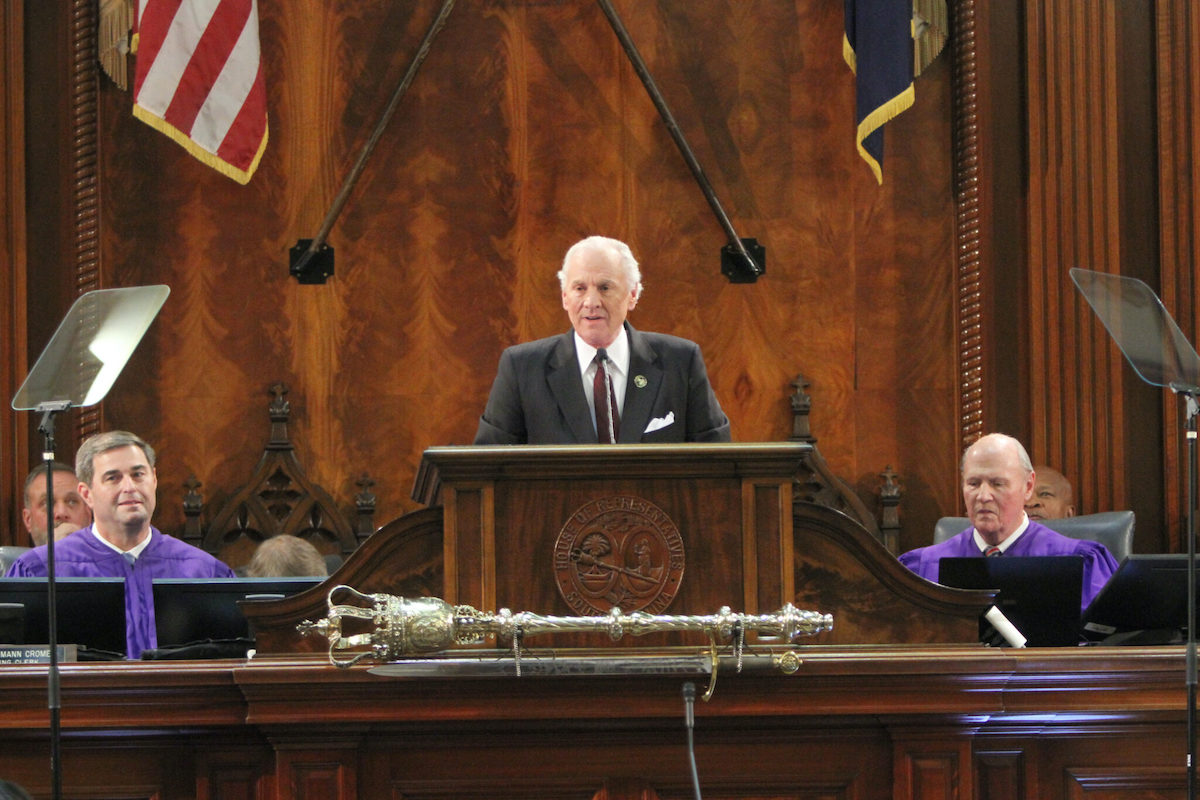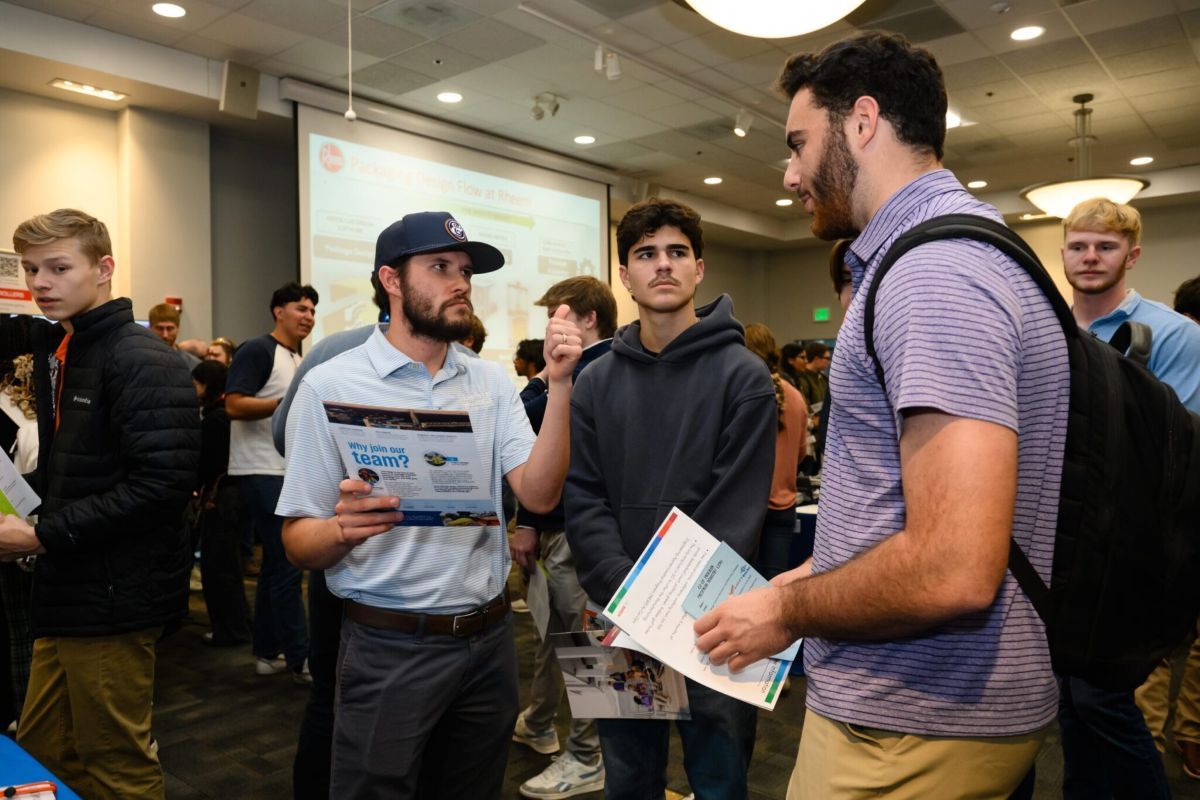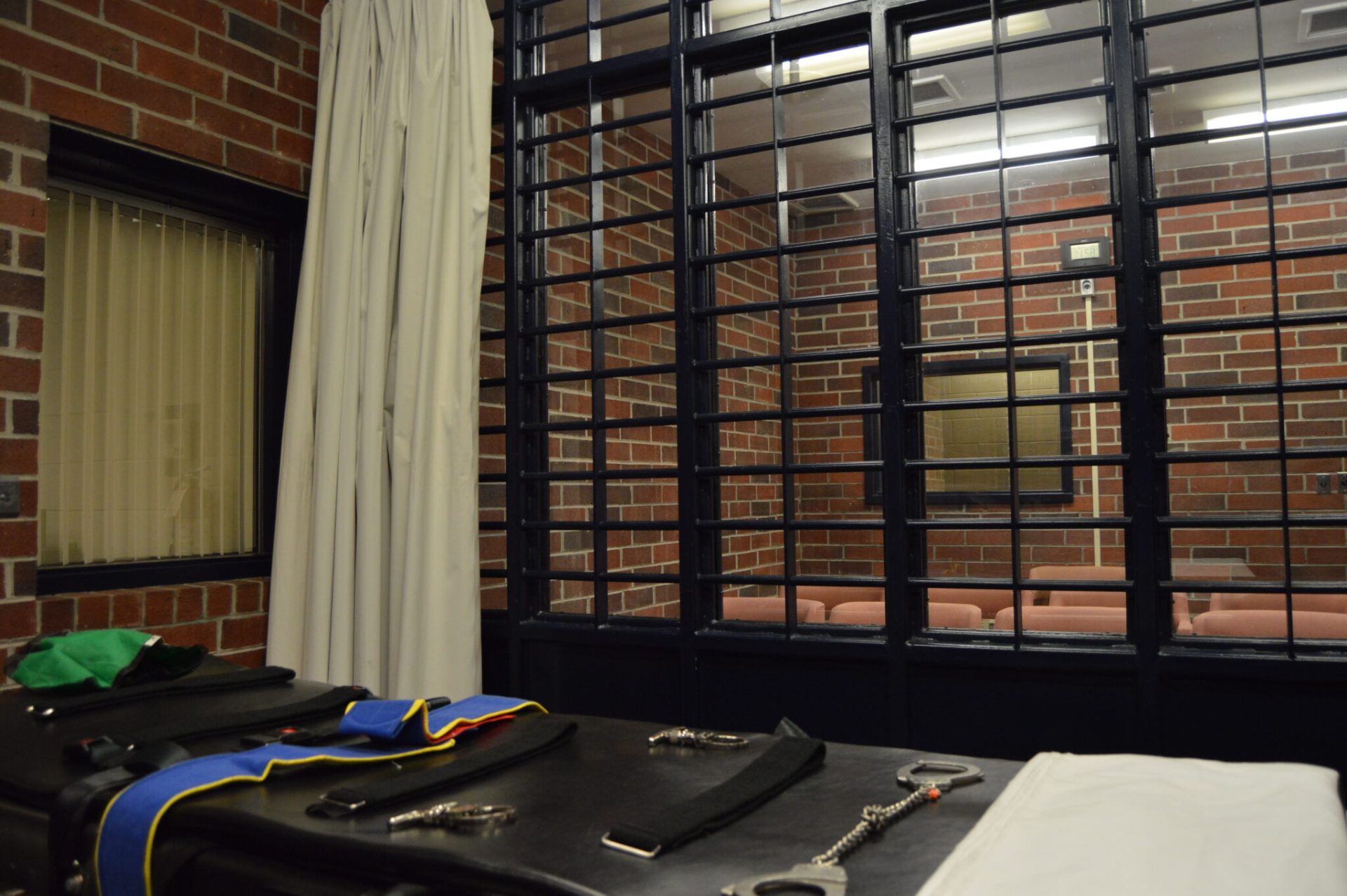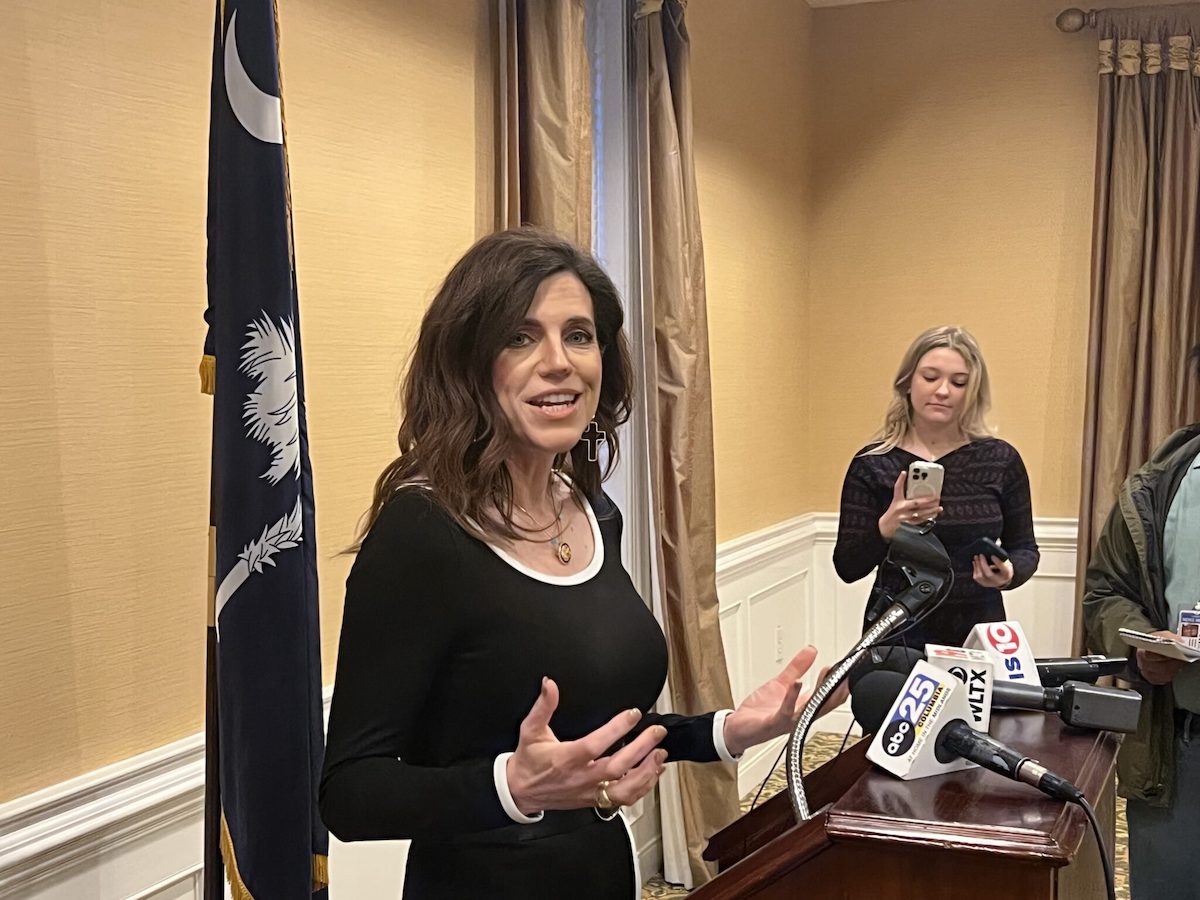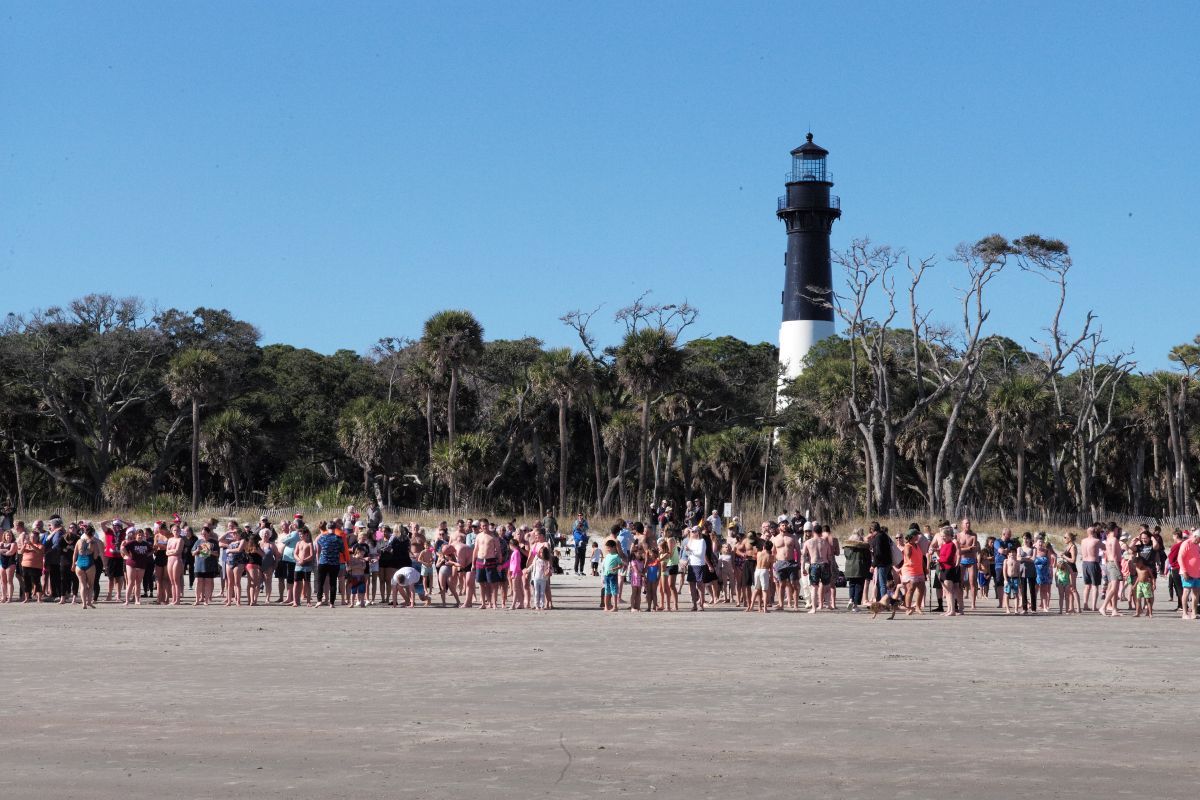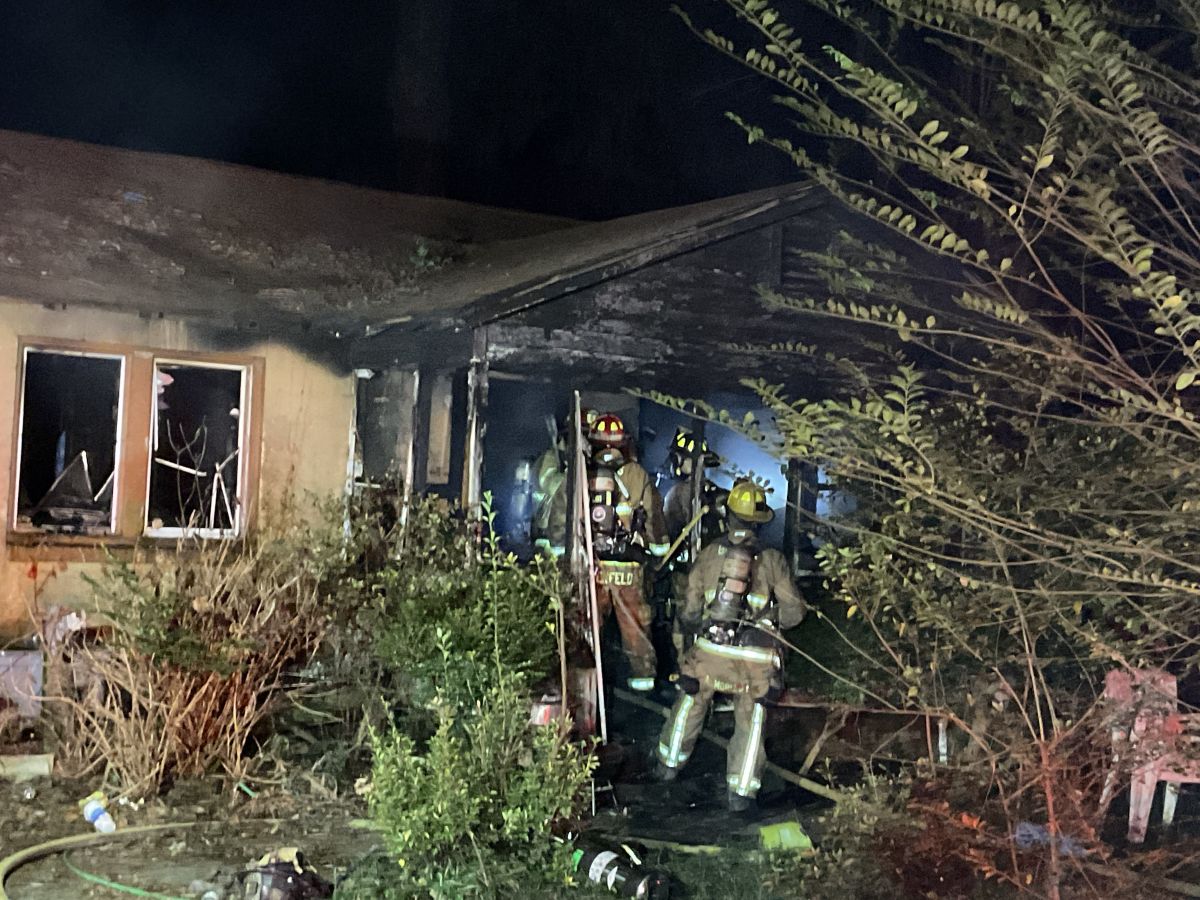By Jessica Holdman
SCDailyGazette.com
COLUMBIA — Gov. Henry McMaster in his eighth State of the State address on Wednesday urged the revival of a failed nuclear project in South Carolina.
State-owned utility Santee Cooper announced last week it would seek a buyer for the pair of half-built nuclear reactors, located at the V.C. Summer Nuclear Station in Fairfield County, that were mothballed more than seven years ago.
“I believe that restarting these two reactors will not only help fuel our state’s future power needs but will also usher in a nuclear power renaissance across the country, one that will spur nationwide investment and construction of new nuclear power generation,” McMaster said in his hour-long speech.
The governor’s support for the project comes as legislative leaders grapple with how to meet the state’s growing energy needs.
“We are running out of time,” said the governor, who with his address officially became the longest-serving elected governor in South Carolina history.
“Our electric generation, distribution, and transmission capacity and capabilities must be able to handle enhanced future economic development, anticipated technological advances, and population growth,” McMaster continued.
And he urged action by the General Assembly to address the issue.
When Santee Cooper and now defunct South Carolina Electric & Gas partnered on the V.C. Summer expansion nearly two decades ago, it marked the first new nuclear construction in the country in 40 years.
But construction fell behind schedule and over budget. The companies ultimately abandoned the effort in July 2017 — after jointly spending $9 billion.
South Carolina power customers are still paying much of the cost for the reactors that have yet to generate a single megawatt.
Remembering Helene
The governor also went on to pay homage to South Carolina’s electric utility line workers.
Hurricane Helene’s arrival to the Palmetto State as a tropical storm in the pre-dawn hours of Sept. 27 knocked out power to some 1.4 million homes and businesses.
“Joining us here tonight are a few of the men and women who worked day and night – some for weeks, at dangerous heights, and around deadly high voltage electricity – to get the power back on,” McMaster said, asking workers in the balcony to stand.
Legislators responded by giving them a standing ovation.
Helene was the deadliest storm to ever hit the state, killing 49 people and damaging at least 6,300 homes and 912 roads. Ten bridges must still be rebuilt.
More than $5 million in donations poured into the One SC Fund at Central Carolina Community Foundation to help people recover, the most that has ever been donated to the fund for a single storm since it was created following the historic flooding of 2015.
The state has received federal disaster dollars, and more is expected, but it won’t be enough, McMaster said.
For example, the Department of Transportation will need an additional $50 million for debris removal and road repair expenses that aren’t covered by the federal government, he said.
Meanwhile, to prepare for future storms, the governor renewed his budget requests to allocate $40 million toward replenishing a pair of state-funded reserves to help with disaster recovery and prevention. He also wants legislators to put $150 million into a new state grant program to cover what the Federal Emergency Management Agency won’t.
“That’s how we take care of our people,” he said.
‘We must fix this’
McMaster again asked the Legislature to put the state’s agencies serving those with disabilities and mental health issues under his direct control as Cabinet agencies.
The federal Department of Justice sued the state last month, saying South Carolina keeps adults with serious mental illnesses in institutions longer than necessary.
According to an outside analysis of the state’s health system, 77% of young people facing depression do not receive mental health treatment. That’s on top of a growing number of homeless people “who fall through the cracks,” with untreated mental, physical or substance addiction problem, the governor said.
“Our people with physical disabilities, special needs and mental health issues seeking assistance must navigate through a confusing landscape of offices, agencies and officials as they seek help for a loved one or dependent,” McMaster said. “We must fix this.”
McMaster said the agencies are run by boards of commissioners “who are accountable to no one.” He asked the Legislature to “hold one person — their governor — accountable” for the Department of Mental Health and the Department of Disabilities and Special Needs.
Private school choice
Senators were in their second week of debate on a bill that would use lottery profits to provide scholarships for private K-12 tuition. As introduced, the aid for up to 15,000 students would align with what the state sends school districts on average per pupil, which would be about $8,500 next school year.
The governor asked the GOP-controlled Legislature to send him a bill as soon as possible that would reinstate the private tuition payments halted in September by the state Supreme Court. A majority of justices ruled the payments violated the state constitution’s ban on public dollars directly benefiting private education, which partially threw out a 2023 law that provided $6,000 annually in taxpayer-funded scholarships.
“Parents, not school attendance lines, should determine the education that best suits their child’s unique needs,” McMaster said.
But Democrats, in their response to the governor’s remarks, pushed back, saying so-called school choice is not the answer.
“Instead of sending our tax dollars to private schools, we should first fully fund our public schools — something South Carolina has neglected to do for decades,” said Sen. Margie Bright Matthews.
The Walterboro Democrat, who delivered her party’s response, said the bill under debate in the Senate dismantles public education.
“Taking money from public schools and giving it to private schools, won’t improve educational outcomes for thousands of children who need it most,” she said.
Jessica Holdman writes about the economy, workforce and higher education. Before joining the S.C. Daily Gazette, she was a business reporter for The Post and Courier. S.C. Daily Gazette is part of States Newsroom, the nation’s largest state-focused nonprofit news organization.

